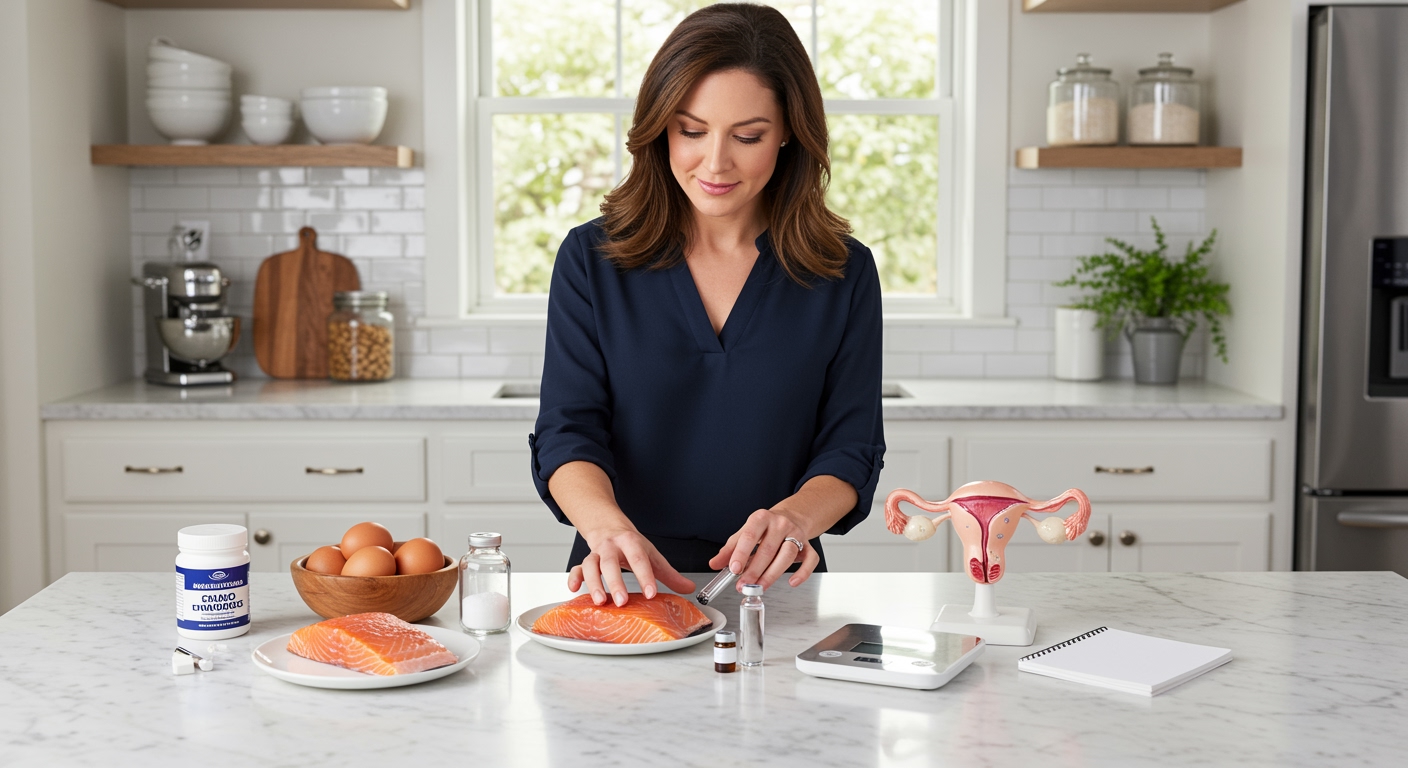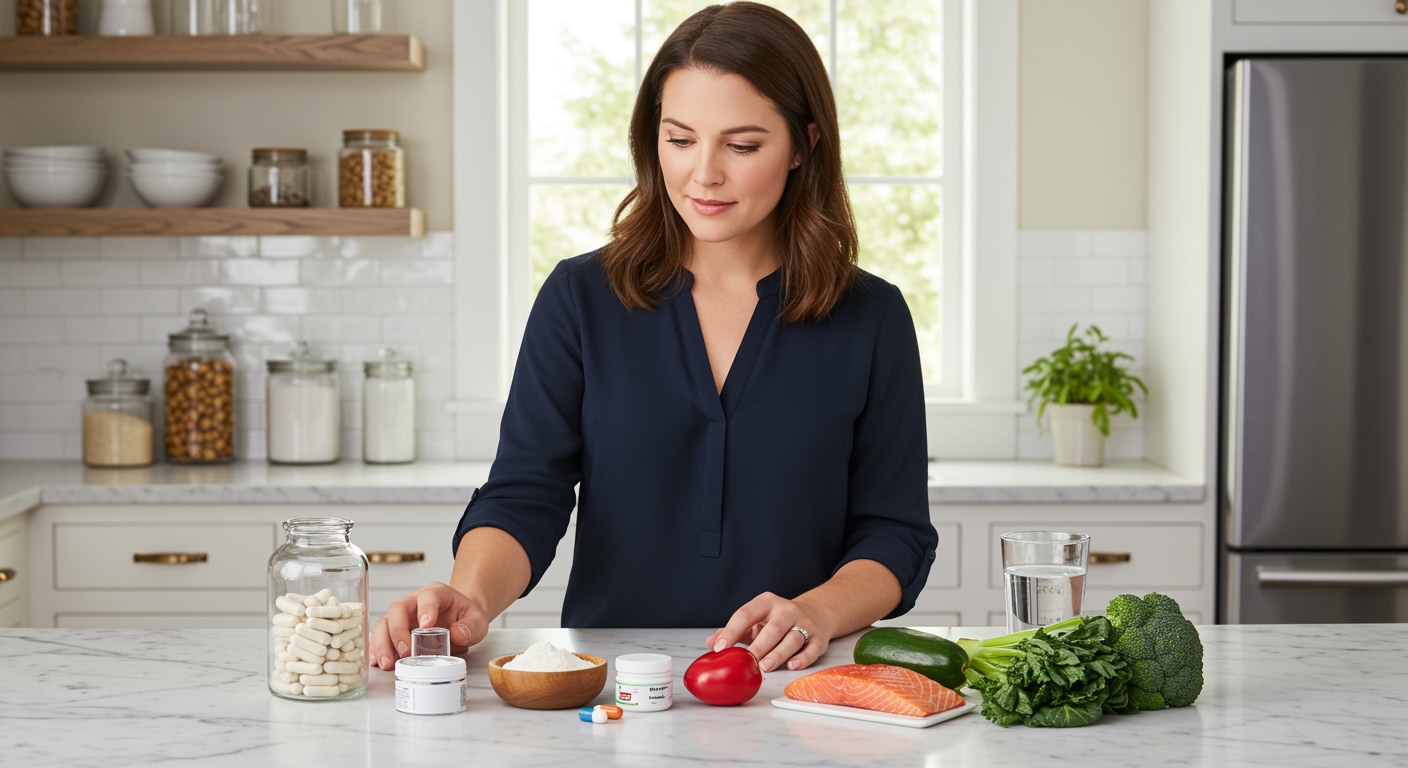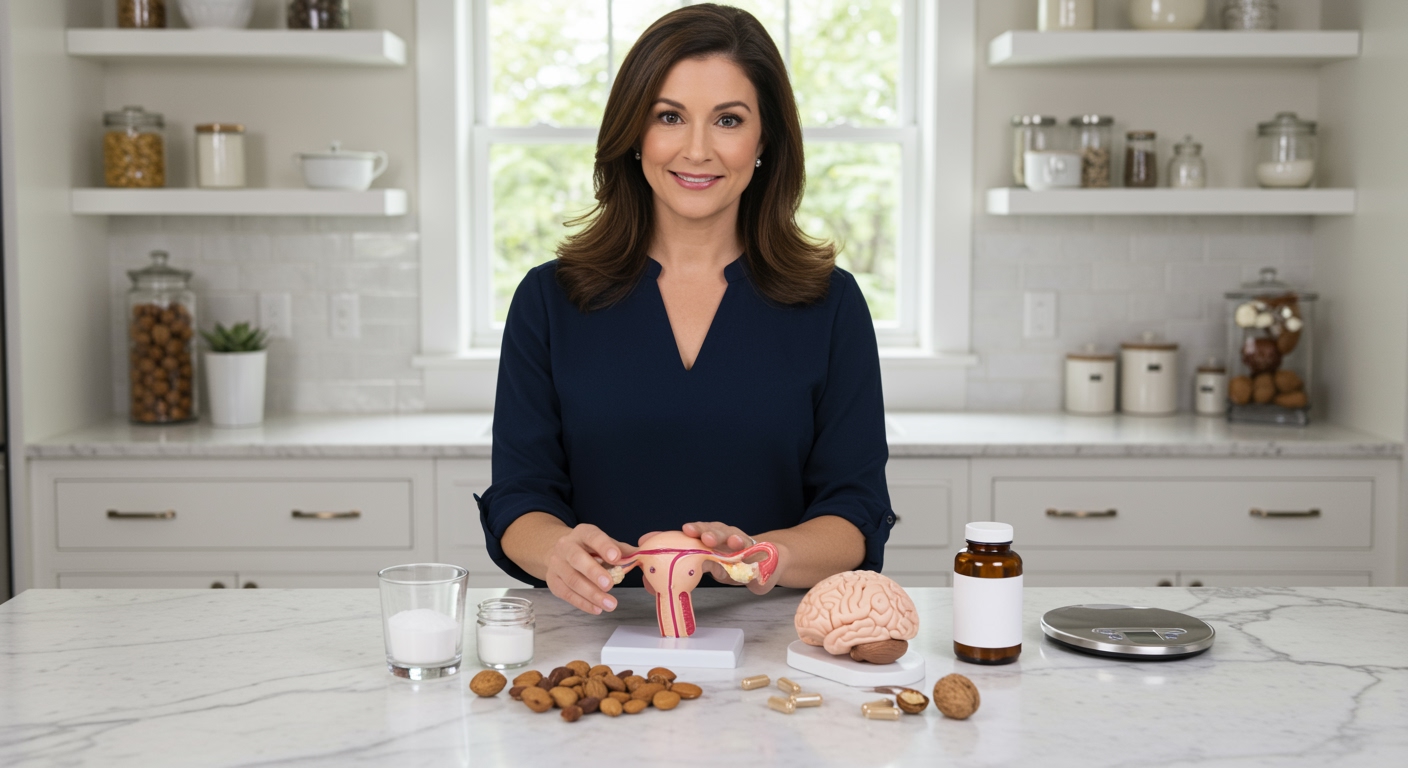✪ Key Takeaway: Valine may worsen PCOS symptoms by increasing insulin resistance and disrupting hormone balance in affected women.
Introduction
You probably never thought an essential amino acid could make your PCOS worse.
Many women with PCOS focus on cutting carbs and sugar while completely ignoring how certain proteins might be sabotaging their progress.
Hi, I’m Abdur, your nutrition coach and today I’m going to explain how valine affects your PCOS symptoms and whether you should be concerned about this amino acid.
What Exactly Is Valine And Why Should You Care?
Valine belongs to a group of three amino acids called branched-chain amino acids or BCAAs.
Your body cannot make valine on its own, so you must get it from protein sources like meat, dairy, eggs, and legumes.
This amino acid plays a crucial role in muscle building, energy production, and maintaining proper nitrogen balance in your body.
Under normal circumstances, valine supports healthy muscle function and helps your body recover from physical stress.
However, research shows that women with PCOS often have elevated levels of valine and other BCAAs in their blood.
This elevation is not a good sign and may actually contribute to worsening PCOS symptoms.
✪ Fact: Women with PCOS have 20-30% higher BCAA levels compared to healthy women.
How Does Valine Affect Insulin Resistance In PCOS?
The connection between valine and insulin resistance is where things get complicated for women with PCOS.
When you consume protein containing valine, your body breaks it down and releases it into your bloodstream.
High levels of valine can interfere with your cells’ ability to respond properly to insulin signals.
This interference happens because valine competes with other amino acids for transport into your muscle cells.
When this transport system gets overwhelmed, your muscles become less efficient at taking up glucose from your blood.
The result is higher blood sugar levels and increased insulin production, which worsens the insulin resistance cycle that drives PCOS symptoms.
Studies show that reducing BCAA intake can improve insulin sensitivity in women with metabolic disorders.
✪ Pro Tip: Monitor your protein timing and sources to avoid overwhelming your system with BCAAs all at once.
Can Valine Worsen Hormonal Imbalances?
The relationship between valine and hormone production in PCOS is more complex than most people realize.
Elevated valine levels can stimulate the production of insulin-like growth factor, which promotes androgen synthesis in your ovaries.
Higher androgen levels lead to classic PCOS symptoms like irregular periods, acne, and male-pattern hair growth.
Valine also affects your liver’s ability to process hormones efficiently.
When your liver is busy metabolizing excess amino acids, it has less capacity to break down excess hormones circulating in your system.
This creates a backup of hormones that can worsen PCOS symptoms and make it harder to achieve hormonal balance.
✪ Note: Supporting liver function through proper nutrition can help your body process hormones more effectively.
Should You Avoid Valine-Rich Foods Completely?
The answer is definitely not – completely avoiding valine would be both impossible and dangerous for your health.
Valine is essential for basic body functions, and severe deficiency can lead to muscle wasting and neurological problems.
Instead, focus on moderating your intake and choosing protein sources wisely.
Plant-based proteins like quinoa, hemp seeds, and legumes provide valine in smaller amounts compared to animal proteins.
Spreading your protein intake throughout the day rather than consuming large amounts at once can help prevent BCAA spikes.
Consider working with a nutrition professional who understands PCOS to create a balanced approach that meets your protein needs without overwhelming your system.
The goal is finding the right balance that supports your health without exacerbating PCOS symptoms.
✪ Pro Tip: Aim for 0.8-1.0 grams of protein per kilogram of body weight daily, distributed across multiple meals.
The Bottom Line
Valine is not inherently bad, but elevated levels can worsen PCOS symptoms by increasing insulin resistance and disrupting hormone balance.
Smart protein choices and proper timing matter more than complete avoidance when managing PCOS effectively.
I would love to hear about your experiences with protein and PCOS management – please share your thoughts or questions in the comments below.
References
At NutritionCrown, we use quality and credible sources to ensure our content is accurate and trustworthy. Below are the sources referenced in writing this article:





